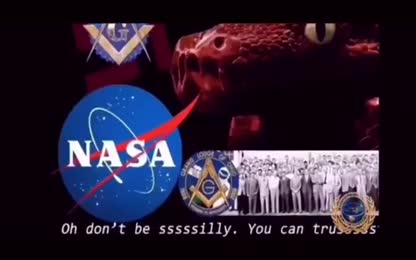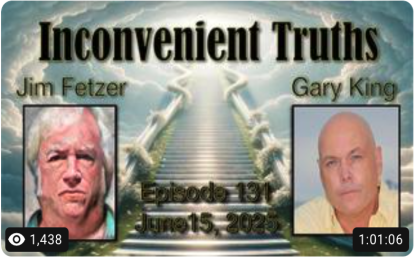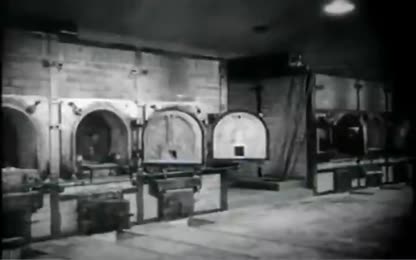Advertisement
WW2 Truth - Mark Weber - myths explained - germany - hitler
WW2 Truth - Mark Weber - myths explained - germany - hitler
- Category: History/Historical Place/Build,Hitler / World War II,Military/Army/Soldier/Training,Revisionism
- Duration: 33:20
- Date: 2018-03-15 19:26:29
- Tags: hitler, adolf hitler, ww2, history, revisionism, mark webber, germany
0 Comments
Video Transcript:
nd d d d d Ladies and gentlemen, I'm going to talk about the central event of the 20th century and a very important event in American history. World War II. Now, World War II, of course, was not only the greatest military conflict in history, it was also America's most important 20th century war. As you all know, it was a clash that pitted on the once-hand, the United States and the other allies, and on the other side, Germany, Japan, and the other Axis countries. It's routinely portrayed in the American media as the good war. That is a morally clear-cut conflict between good and evil. It's also portrayed as an unavoidable and necessary war, one that the United States had to wage to keep from being enslaved by cruel and ruthless dictators. Whatever doubts or misgivings Americans may have had about their country's role in the Iraq War, in Vietnam, and another overseas conflict, most except that the sacrifices made by the US and World War II, especially in defeating Hitler's Germany, were entirely justified and worthwhile. Even after the passage of many years, this hatred that was fostered during the Second World War has endured. Our American schools, the US mass media, government agencies, and political leaders, continue a campaign of emotion laden, one-sided propaganda to uphold what is a kind of national mythology about World War II. As I mentioned, I laid out some of the reasons why I regard this as a national myth in the talk I gave three weeks ago. The text of that talk entitled The Good War Myth of World War II is now posted on the IHR website and can easily be found on the site's homepage. I took aim, for example, at the comfortable myth that World War II is a clash between the forces of freedom on the one hand and the powers of tyranny on the other. In fact, America's most important military allies in the war were great Britain and the Soviet Union. That is, the world's foremost imperialist power and the world's cruelest tyranny. During the war, the United States helped substantially to maintain Stalin's tyranny and to aid the Soviet Union in oppressing additional millions of Europeans, while also helping Britain to maintain or reestablish its imperial rule over many millions in Asia and Africa. The so-called Big Three Allied Leaders, US President Roosevelt, British Prime Minister Winston Churchill and Soviet Premier Stalin, accomplished what they accused the Axis leaders of Germany, Italy, and Japan of trying to achieve world domination. The Allied leaders acting in crass violation of their own solemnly proclaimed principles disposed of tens of millions of people with no regard for their wishes. There's probably no chapter of World War II that is as central a part of the American national myth about World War II as D-Day. The American landing, or the landing by American British and Canadian forces on Normandy, France on June 6, 1944. The D-Day landing has been immortalized in two major American motion pictures, the longest day in 1962 film, a very lengthy one, starring John Wayne, Henry Fonda, Robert Mitchum, and a galaxy of other well-known actors. And the Steven Spielberg film, Saving Private Ryan, starring Tom Hanks, which came out in 1998. Now, the mythology about World War II gives D-Day and the American landing a very central place. One of those who has, just recently, laid out the kind of American mythology about D-Day, is a radio talk show host, named Chuck Baldwin, who's also pastor of the Crossroad Baptist Church in Pensacola, Florida. This year he's the presidential candidate of the Constitution Party. In a recent article entitled Remembering D-Day, he wrote this, he said at stake in D-Day was the fate of Europe, the war in Europe, and the fate of freedom for the world. It was he went on to write a great victory for the Allied forces in the beginning of the end for Nazi Germany. By mid-morning, he said it was obvious that the Allies would succeed. By nightfall there were 150,000 Allied troops ashore, and thousands more on their way. The Nazis were doomed to defeat Germany surrendered less than a year later. When our forces landed on the Normandy coast, Mr. Baldwin goes on, we were fighting for freedom. Freedom to speak, freedom to worship, freedom to elect our representatives, and freedom to protect and provide for our families. America was birthed and sustained under the banner of freedom. Accordingly, this nation has enjoyed the peculiar protection and blessing of Almighty God. Baldwin concludes this piece with the words, thanks to the soldiers, sailors, airmen, and coast guards of the D-Day, yes, old glory still waves. This view is a very common one in America, but it's also very untrue. The American soldiers who stormed the beaches at Normandy on June 6, 1944 were not fighting for the freedom of Americans. Contrary to what Mr. Baldwin and what we're told over and over in our media is that Germany was not threatening America's freedom. In fact, the German government tried everything it could to avoid for years war with the United States, and it was the United States government, as I laid out in some detail three weeks ago, which tried everything in its power to provoke conflict with Germany. America could easily, and millions of Americans supported the view, that America should stay out of World War II. But the view of Mr. Baldwin and of many Americans is that American soldiers quote, fight for freedom, that is, they always fight for freedom, which is another way of saying that none of the wars that America has fought has ever been a mistake, that in Olsos-Sparks-Tarotustra by Friedrich Nietzsche, he wrote that, a good cause in nobles a war, but he says, I say to you, a good war in nobles any cause. What he means by that is that when a country sacrifices its young men, it makes whatever the cause the country stands for, and its political system seem all the more noble. But it's a dangerous view, because it looks at war, not as a conflict of nations or over interests, but as a conflict between good and evil. And the danger of that, which I will go to more in later in my talk, is that we go to war when our leaders have persuaded themselves or the public that the other side is evil and that we are good, and the dangers of that are something with great consequences and great pertinence here today. About D-Day, the myth also about D-Day and the fighting in Normandy, is that the American soldiers were exceptionally brave, exceptionally capable, just all around better soldiers in the Germans. Some of you may remember a very popular American television series called Combat, which appeared for several years, starring a man who was portrayed as Sergeant Saunders. And week after week, day after day of this show, he and his small team of American soldiers characterized by their cool bravery were able to easily defeat larger numbers of wooden-headed German soldiers. Of course, this is every country likes to feel that its soldiers are brave, but the combat series and American motion pictures emphasize this portrayal of American soldiers as not only fighting the good fight, fighting on the side of freedom, but also being exceptionally capable and good soldiers. Well, that also is a myth. The British historian Max Hastings, who is an outstanding military historian and also was editor of the Daily Telegraph and the Evening Standard newspapers, is the author of an important 1984 book entitled Overlord, D-Day in the Battle for Normandy. The Inescapable Reality of the Battle for Normandy was that whenever Allied troops met Germans on anything like equal terms, the Germans nearly always prevailed. Hastings went on to write that this was because the Allies in Normandy faced the finest fighting army of the war, one of the greatest the world has ever seen. This is a simple truth that some soldiers and writers have been reluctant to acknowledge. During the war, the senior ground commander of British forces in Italy, Sir Harold Alexander, wrote a letter in which he spoke about the quality of the German troops. In a letter to the British Army Chief of Staff, Alexander wrote, unfortunately, we are fighting the best soldiers in the world. What men, and he ended it with an exclamation point. Taking another view, a skeptical view, a new view about the past is what most historians and what we call revisionist history. It comes from the Latin word to look again, Rev. R.A. to take another look. That's what historians do. If a historian is not taking a new look based upon new insights, new perspectives, or new evidence, he's not being a good historian. Well, just recently, two very important books have just appeared and are now in bookstores all across the country, dealing with World War II. Two important, dissident, iconoclastic, revisionist books. And these books are the first, is entitled Human Smoke, the beginning of World War II in the end of civilization by Nicholson Baker. And the other book by a better known writer, Patrick J. Buchanan, is entitled, Churchill, Hitler, and the Unnecessary War. I recommend both of these books. Of course, not everything in the books are things that I agree with. Not everything is one can always have disagreements. But the essence and the character of these two books is not only very important, but they make some very, very important and valid points that run very counter to the perceived and official or semi-official view about World War II. They come from very different perspectives. The authors have very different views about World War II. Nicholson Baker is essentially a pacifist. He's a man who believes that the most terrible crime of all, the most terrible thing in history, is war itself. And he emphasizes in this book how war has its own dynamic, especially in the modern age in times of democratic societies where in order to keep the population supportive of war, one has to portray the enemy as absolutely diabolical and mad. Wars become inevitably ever more barbaric and ever more destructive. And he traces this very well in this book, Human Smoke. Patrick Buchanan comes, of course, from another point of view, a different point of view. Patrick Buchanan's book is really in a way three or four different books at once, a very big chunk of the book at the beginning deals with the First World War. And the aftermath of the First World War and the Treaty of Versailles, which laid the foundation for the Second World War. They has a very large section of the book that deals with the Faithful British Guaranteed of Poland in March 1939. This is very important and not very well understood, and it's a great service that Patrick Buchanan has dealt with this in such detail. In World Politics, one of the most dangerous things any large country can do is to give an open-ended guarantee, an open-ended pledge of support for a country which is unstable or whose leaders are somewhat reckless. It commits a large power then to wars that in situations that it's not able to control and it permits small and sometimes irresponsible countries to get into conflicts that drag larger countries. And Patrick Buchanan and many others, for example, have warmed about the U.S. alliance, the open-ended blank-check alliance the United States has with Israel and the consequences of the dangers of that for the United States. But there are many other examples in history of that. But the case that Patrick Buchanan deals with in his book in some detail is in 1939. Great Britain gave an open-ended pledge to support Poland if its, quote, independence was being threatened. A secret clause of this pledge and treaty said that this was only to be directed in the case of a German attack. It was not to apply to a Soviet attack because the real British motive of the fateful guarantee to Poland was not really to preserve Polish independence. It was to serve as a trigger for going to war against Germany, which was the point and purpose of British policy at that time. After that, Patrick Buchanan then has an amazing chapter devoted in a lengthy chapter devoted to Winston Churchill. Now that's one of the most remarkable features of each of these books. Whether a person is a liberal and his sympathies tend to be leftist or a person, whether a person is a conservative and his sympathies or his outlook is more conservative, neither a person from either point of view is going to have a hard time defending the legacy of Winston Churchill after reading these two books and I might add after reading the two volumes of the three-volume biography of Winston Churchill by David Irving and the book about the biography of Winston Churchill by John Charmley, which came out several years ago. Winston Churchill is almost an icon, a hero to many Americans. Charles Krauthammers called him the man of the century and he's held up as a great hero. But after reading either of these two books or I think really doing any really independent investigation about Winston Churchill and his career, it's very hard to come away with anything other than a feeling of disgust at the opportunism, the ambition and the lack of principle of this man as shown over the years. The publication of these two books represents I think a growing awareness that the official narrative we've been told for more than 60 years about World War II is a very defective one. And much of the reason for the growing skepticism about the longstanding official view of World War II and especially of America's role in the war is due in part I think to the passing of the generation, sometimes called the greatest generation, that experienced and lived through the war, and second a growing and a bitter realization that the US government can and does lie to the American public. Millions of Americans feel a sense of disgust and betrayal about the way in which the Bush administration deceived and lied to the American public in the run up to the US invasion and occupation of Iraq in 2003. This legacy and this pattern of betrayal on top of the legacy of deceit by the US government during the Vietnam War in the 1960s and 70s has encouraged many more Americans to reexamine or rethink longstanding assumptions about World War II and to question what our political leaders, our textbooks and our teachers have told us. One of the interesting points about each of these books and I haven't seen this done even in the books that came out in the 1940s and early 50s which have been largely forgotten. One of the things that these two books do is take a closer and a more serious look at the numerous proposals by Hitler for peaceful resolution of tensions before the outbreak of war in 1939 and Hitler's efforts once we were had begun to bring the conflict to an end. Both Baker and Buchanan write for example of Hitler's proposal to Poland in 1939 numerous proposals in fact to peacefully resolve the problem of Donzig and overwhelmingly German city that after World War I the British, French and American leaders in violation of their own solemn promises detached from Germany and made a so-called free city under international supervision. Baker and Buchanan also take seriously Hitler's proposals of peace after the defeat of Poland. For example in a major address in October 1939 Hitler warned that if the pro war Churchill faction in the British government prevailed the result would be a terrible large scale war that would be a catastrophe for everyone. Hitler said in the course of history there have never been two victors but very often only losers. Baker and Buchanan also discuss and again take seriously the German peace initiatives in 1940 to Britain especially after the fall of France. Each author cite Hitler's historic address to the Reichstag on July 19 1940 in which Hitler noted Winston Churchill's adamant rejection of any talk of peace, any desire to negotiate and Churchill's determination to continue the war to remove the national socialist regime in Germany. Hitler said Mr. Churchill is just declared again that he wants the war and Hitler went on to say a great world empire will be destroyed a world empire which was never my intention to destroy our damage but I am fully aware that the continuation of this war will only end with the complete destruction of one of the two warring parties. I see no reason what that should compel us to continue this war. What Baker and Buchanan write in their books and in my view what the historical record clearly shows may be difficult for many Americans to understand or grasp. For example in each book Baker and Buchanan quote from the remarkable article written by Winston Churchill published in February 1920 in a major London newspaper. The article was entitled Zionism versus Bolshevism a struggle for the soul of the Jewish people. Churchill warned about the dangers of Soviet Russian communism or Bolshevism. He described this as a worldwide conspiracy for the overthrow of civilization. He talked about a sinister conspiracy of international jewelry and he wrote that this movement among the Jews is not new. Now so remarkable is Churchill's article to today's ears for somebody hearing it today that Peter Hitchens a British journalist was writing about the Nicholson Baker book in the article he published in the London Daily Mail just a few weeks ago. In writing about the Baker book he was so astonished he wrote here is Churchill in a 1920 newspaper article allegedly railing against the sinister Confederacy of International Jewry. I say allegedly because I have not seen the original I also say it because I am reluctant to believe it. Well it is understandable because by today's standards Winston Churchill was an unabashed racist and imperialist. He was a person who throughout his life was very very supportive of Jewish interests but sometimes said things that by today's standards could be considered completely unacceptable. In fact by the laws of written today would have resulted in imprisonment or affine for Winston Churchill. It is interesting to compare Churchill in that regard with David Irving. When David Irving was under trial just a few years ago he made this very point that whatever views he is expressed on these kinds of subjects are the views that the vast majority, 95% he said of the British people during his lifetime. And of course Winston Churchill held similar views even if he betrayed those same views on other occasions. Some years ago during a meeting of the US Secretary of State and the Foreign Minister of China the American official asked his counterpart what he thought of the French Revolution. The French official thought for a moment and then said it is too early to tell. Well it may be too early to draw any definitive conclusions about the place in history of the Second World War. But no one can dispute I think that we can take a view of the Second World War that is less covered over by the emotions of the war years itself. We can look at World War II with a little less passion or a little less prejudice than the official and familiar one is laden with. One thing we can say for certainty I think is that World War II was not a victory for European culture or Western civilization. At the end of the war Europe for the first time in its history was no longer master of its own destiny but was instead under the domination of two great outer European powers, the United States and the Soviet Union, which for political and ideological reasons had no special interest in or concern for European culture or Western civilization. To say that the war was not a victory for the West or for Europe is entirely understandable because the two major allied powers of the war, which were also the great victors of the Second World War, the United States and the Soviet Union, openly proclaimed that their common goal in waging war and their goal after the end of fighting was to create a new world order based ideologically on the Gallic War. It is a society based on the Gallic War ideology and dedicated to liberal democratic principles is one that inherently and inevitably is not capable of maintaining any specific cultural, ethnic, racial or religious character. For example, the United States, which for decades has embraced an egalitarian universal worldview, is consequently and inevitably losing its character as a specifically white western or European nation and is rapidly and inevitably becoming a diverse, universalist, even third world society. Nowhere of course is this more obvious than here in California. During the past half century the cultural, racial character of California has been dramatically and profoundly transformed. Today a similar transformation is taking place in Europe and for the same reasons. Embracing an egalitarian universalist, liberal democratic ideology, Europe and especially Western Europe is rapidly losing its European character. In Britain and France, large urban areas and entire cities are filling up with people from southern Asia, Northern and Western Africa and other third world regions. This is entirely predictable and inevitable as I said given that the ideology and social political system that prevails in Europe is universalist, egalitarian and liberal democratic. As predictable as all of this was even in 1945, not many in Britain, France and the United States took seriously or fully understood the implications of what the leaders of the allied states were proclaiming and especially what President Roosevelt and other American leaders were telling the world. In Britain for example, many now look back with puzzlement and feelings of betrayal at the legacy of World War II. Peter Hitchens, the British journalist I mentioned earlier, writing again in that article in the London Daily Mail just a few weeks ago, took note of the complaints of many in Britain about the long term consequences of World War II. One often voiced complaint he wrote that I hear from an ever growing number of war veterans contemplating modern Britain's landscape of loudishness and disorder and recalling the sacrifices they made for it, why did we bother? David Irving once made a similar point. He said if the British soldiers on the beaches of Normandy in 1944 could look forward to the end of the 20th century and see what England has become, they would not have bothered to advance another 40 yards up the beach. In the view of Charles Lindbergh, the world famous author and aviator, World War II was a great setback for the West. 25 years after the conflict he wrote, we won the war in a military sense but in a broader sense it seems to me we lost it. For our Western civilization is less respected and secure than it was before. In order to defeat Germany and Japan, we supported the still greater menaces of Russia and China, which now confront us in a nuclear weapon era. Poland was not saved, much of our Western culture was destroyed. We lost the genetic heredity formed through eons in many million lives. It is alarmingly possible that World War II marks the beginning of our Western civilization's breakdown as it already marks the breakdown of the greatest empire ever built by man. Hellenation views the past as not a trivial or merely academic exercise. Our perspective on history profoundly shapes our actions in the present, often with grave consequences for the future. Drawing conclusions from our understanding of the past we make or support policies that greatly impact many lives. The familiar American portrayal of World War II and the good war mythology of the US role in that conflict is not merely bad history. It has helped greatly to support and justify a series of arrogant US foreign policy adventures with harmful consequences for both America and the world. Since 1945, American presidents have repeatedly sought to justify US military actions in foreign countries by recalling the so-called good war and in particular the US role in defeating Germany. During the 1960s, Lyndon Johnson sought to win support for his Vietnam War policy with historically false portrayals of World War II and Hitler's Germany. In recent years, as all of us are aware, American political leaders have tried to gain support for war against Iraq and Iran by drawing historical parallels between Hitler, on the one hand, and the leaders of those two Middle East countries on the other. Many Americans are understandably outraged by the deceit and falsehoods of President George W. Bush and his administration in seeking public support for the US invasion of Iraq in 2003, but presidential deception to justify war did not start with him. In the months before the United States officially entered World War II and throughout the war years, President Franklin Roosevelt, the US government, and a coordinated American mass media carried out a large-scale propaganda campaign to convince Americans that Hitler and his so-called Nazi henchmen or hordes were doing everything in their power to take over and enslave the entire world. As part of this effort, the President and other high-ranking American officials broadcast fantastic lies about supposed plans by Hitler and his government to attack the United States and impose a global dictatorship. Americans who express admiration for the US role in World War II and for Franklin Roosevelt's presidential leadership have little moral right to complain when President's follow his example and lead the country into war by breaking the law, subverting the Constitution and lying to the people. If the history of war in conflict teaches us anything, it is the danger of arrogance and hubris, that is the danger of going to war because the nation's leaders are convinced of their own righteousness or have persuaded themselves or the public that a foreign country should be attacked because the government, because its government or society is not merely hostile or threatening but evil. This is perhaps the most harmful legacy of America's national mythology about World War II. The notion that worthwhile or justifiable wars are fought against countries headed by supposedly evil regimes, and it is this very outlook that moved George W. Bush to refer to his war on terrorism as a crusade and in a major speech to proclaim a US foreign policy dedicated to ending tyranny in the world. This brings me to why we are here this evening. We are here to make these points about history, not to resurrect or to justify any chapter of the past, but to emphasize the importance of an understanding of history for our lives today and the lives of our children and our grandchildren, because it is from our understanding of history that we understand ourselves in the world and our place in the world. And that is why the work of the IHR is very important. Historical reality, historical truth is of the greatest importance, especially in a time when we have national leaders who so grievously mislead our people, misleading them very often on the basis of falsehoods about the 20th century and especially the Second World War. Thank you very much.










 Donate
Donate







